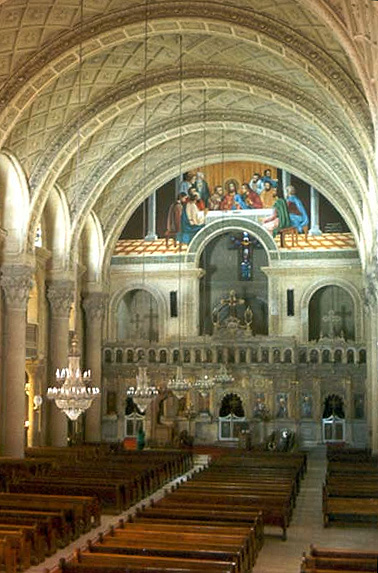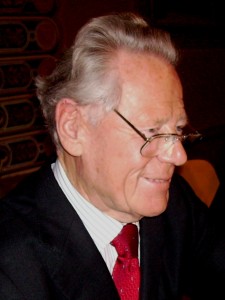 Imagine this hypothetical situation:
Imagine this hypothetical situation:
The progressive Catholics have split from the Vatican to form their own church. They’ve called it the New Catholic Church.
A handful of progressive bishops have taken the place of the Pope as its leaders, and none of them call themselves infallible. Completing the clergy are progressive priests and theologians, mostly Jesuits, who feel exhilarated by the freedom to openly air their opinions without fear of being censured, excommunicated, or fired.
Unlike the Roman Catholic Church, the New Catholic bishops are in constant dialogue with their priests. Theologians thrive as their expertise is sought sincerely. Best of all, the laity are also given a voice. They’re invited to pastoral committee hearings on relevant social issues such as contraception, women’s rights, LGBT rights, and freedom of conscience. It seems like for the first time in centuries, progress is possible.
Progressive Church
Because most Roman Catholics were progressive, the New Catholic Church now outnumbers the Roman Catholic one significantly. And because the Roman Catholic Church is no longer the predominant religion, few politicians pander to them. The drop in donations has forced them to start using their billions in investment, which they have also been using to settle clerical abuse cases. More families are pressing charges with the New Catholic Church urging and supporting them to speak out.
Meanwhile, the New Catholic Church, being the biggest religion, has a steady flow of donations that has allowed them to build simple churches, unlike the luxurious Roman Catholic ones. Most of their funds are spent on charity instead of partisan political campaigns and causes. And none of it is used to settle abuse cases out of court; they report the rare offender to the police and fully cooperate with the authorities so that justice is ensured.
Having learned from the dangers political meddling, the New Catholic Church focuses on the well-being of its flock, avoiding partisan politics and fully respecting the separation of church and state. This has allowed legislation to proceed more smoothly, with the blackmail and fear mongering of the Roman Catholic Church falling on the ears of few conservative politicians.
New Catholics are thriving in their new religion, where they agree with the moral position of their priests and bishops, never again having to withhold tithes or walk out of sermons. Their personal views no longer conflict with their Church’s teachings, and educating the youth is now a cooperative effort between parents, teachers, and priests, each lesson based on scientific evidence and humanistic ethics.
Now. In this hypothetical future, if you are a progressive Catholic who still belongs to the Roman Catholic Church, would you join the New Catholic Church? Remember that the progressive priests and theologians who have made your religion bearable have already left to join this new one. Most of your progressive friends and relatives have also converted.
Would you remain a Roman Catholic when your views on so many social issues are at odds with the clergy? Would you tithe and pay for sacraments in a conservative church when you could so easily get the same experience in its progressive counterpart? What good reasons are there to remain Roman Catholic?

Stalemate
I don’t think it’s a stretch to say that most progressive Catholics would convert to this New Catholicism in a heartbeat. I believe that this is the ideal situation every progressive Catholic hopes would happen inside the Roman Catholic Church. The only problem is, this is not going to happen.
The conservatives in the Vatican are in full control, and because they’re a dictatorship, the opinions of the majority don’t matter. The only way progressive Catholics can get their ideal situation is by forming their own institution outside the Roman Catholic Church.
And this is precisely the problem. To make the New Catholic Church possible, they have to leave the Roman Catholic Church. Every person has to leave on their own. And someone has to start it. But who would begin such an exodus?
The youth would probably be the most willing. But their youth might be a turnoff to those who are so used to getting guidance from more mature men.
The older progressives are more authoritative, but they’re probably too settled into their Roman Catholic routine, with careers and families taking up most of their time, that taking on such a big change would be too much to ask. Not to mention they still wouldn’t be authoritative enough for those who look for a sense of the sacred in their leaders.
Progressive priests and theologians would have this holy authority. But compared to the laity, they would be risking their careers, their livelihoods. They would need to rely on their savings because while starting a new religion they wouldn’t have a source of income.
Bishops probably have enough saved up. But the way the Vatican has been screening bishops since Vatican II, finding even one progressive bishop is a challenge in itself, and such a person would be risking the most in terms of the wealth and influence he would have to give up.
That leaves no one.
Conservative Church
I believe that every individual needed for this New Catholic Church is already here. Majority of Roman Catholics who now have more progressive views than their conservative counterparts and clergy. A group of dissenting priests and theologians who have been expressing their progressive ideals more and more publicly. Enough ideological and theological conflict in many core beliefs to make forming a new religion necessary. And enough shortcomings of the Roman Catholic Church to make leaving it, ceasing to further support its bigotry, an ethical necessity.
But progressive Catholics have to start somewhere. Each of them would join this New Catholic Church if it is ever formed. But few, if any, of them would be willing to leave the Roman Catholic Church to start it.
Progressive Catholics will be content to bear their burden together, comforting each other with their shared dissent, hoping for change but knowing in their hearts that it will never come. Meanwhile, the Vatican thrives with power, arrogance, and impunity, never having to worry about the progressive church that will never come.


As far as I know, a progressive Catholic splinter group known as “Iglesia Filipina Independiente” has been in existence since 1902. Pioneering members fought for clerical autonomy from the Vatican, and are reputed for their anti-imperialist, non-dogmatic and pro-poor/women/LGBT views. They also place great emphasis on liberation theology, putting them in line with GomBurZa, Hermano Pule and even Pope Francis but with stronger sense of community activism. What do you think?
nice article sir.
"Now. In this hypothetical future, if you are a progressive Catholic who still belongs to the Roman Catholic Church, would you join the New Catholic Church?"
-I will in some time and only with views promoting compassion, kindness, respect and tolerance.
Nice article, Red Tani.
Are most Catholics progressive . . . or just most Catholics in First World countries? In North America, Western Europe and a few other places, most Catholics might be progressives but what about the Philippines or Mexico or most Third World countries? I suppose there must be stats somewhere that answer this question but I'm haven't seen them.
With Catholics abandoning the church in Ireland, the U.S. and elsewhere — mostly due to the priest pederasty scandals — the time is ripe for progressives to break away from the conservative Church. But I don't see that happening in the Philippines or Mexico or South America. Nonetheless, I'm hopeful that progressives are more numerous than I perceive them to be and that you're proven prescient in contemplating a schism in the Church.